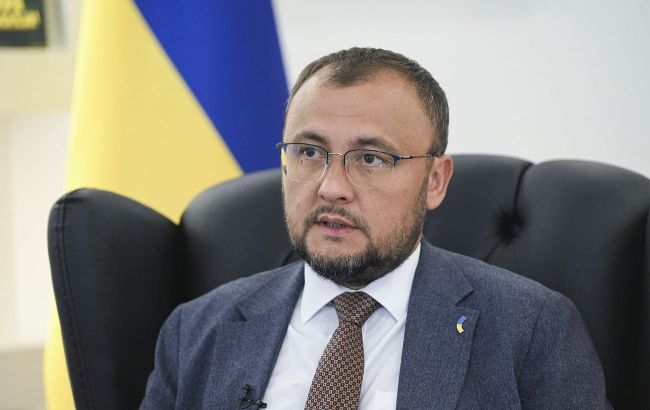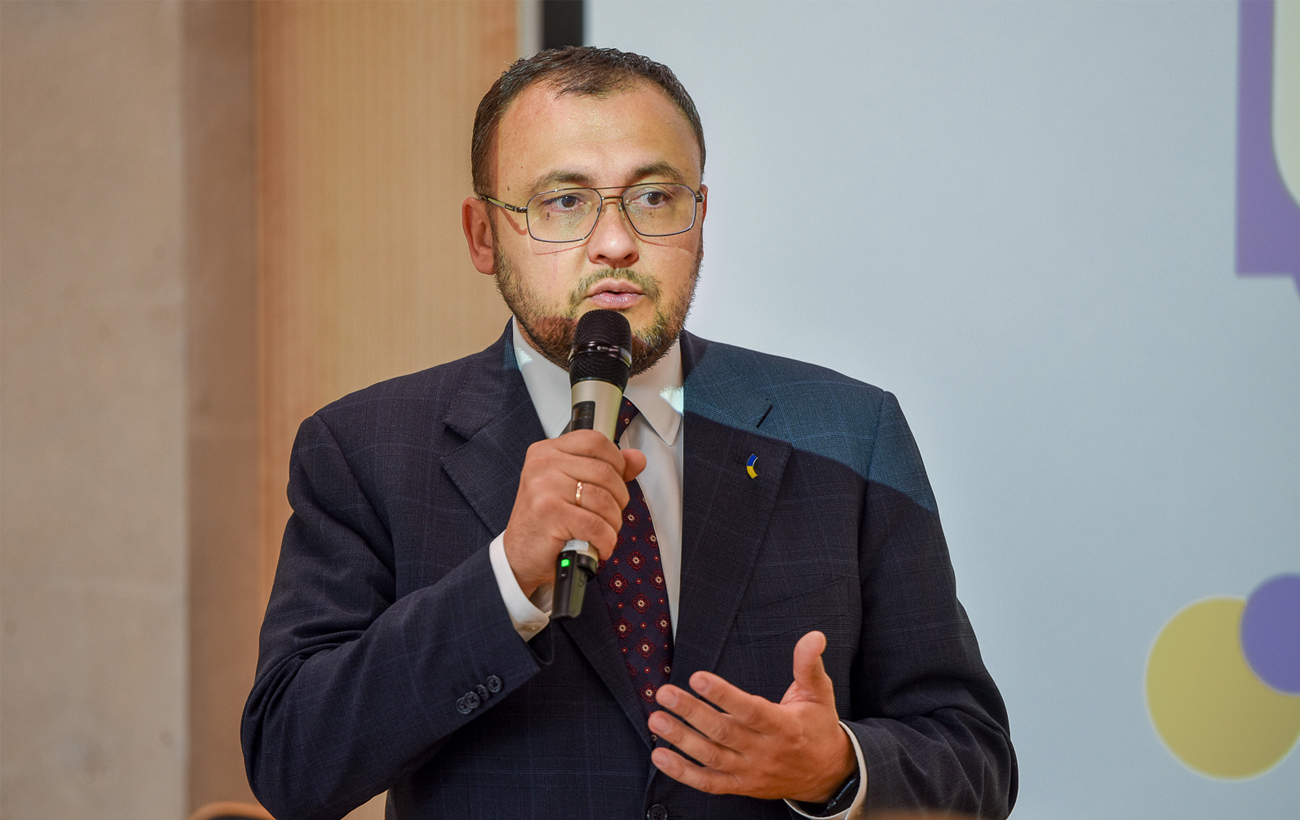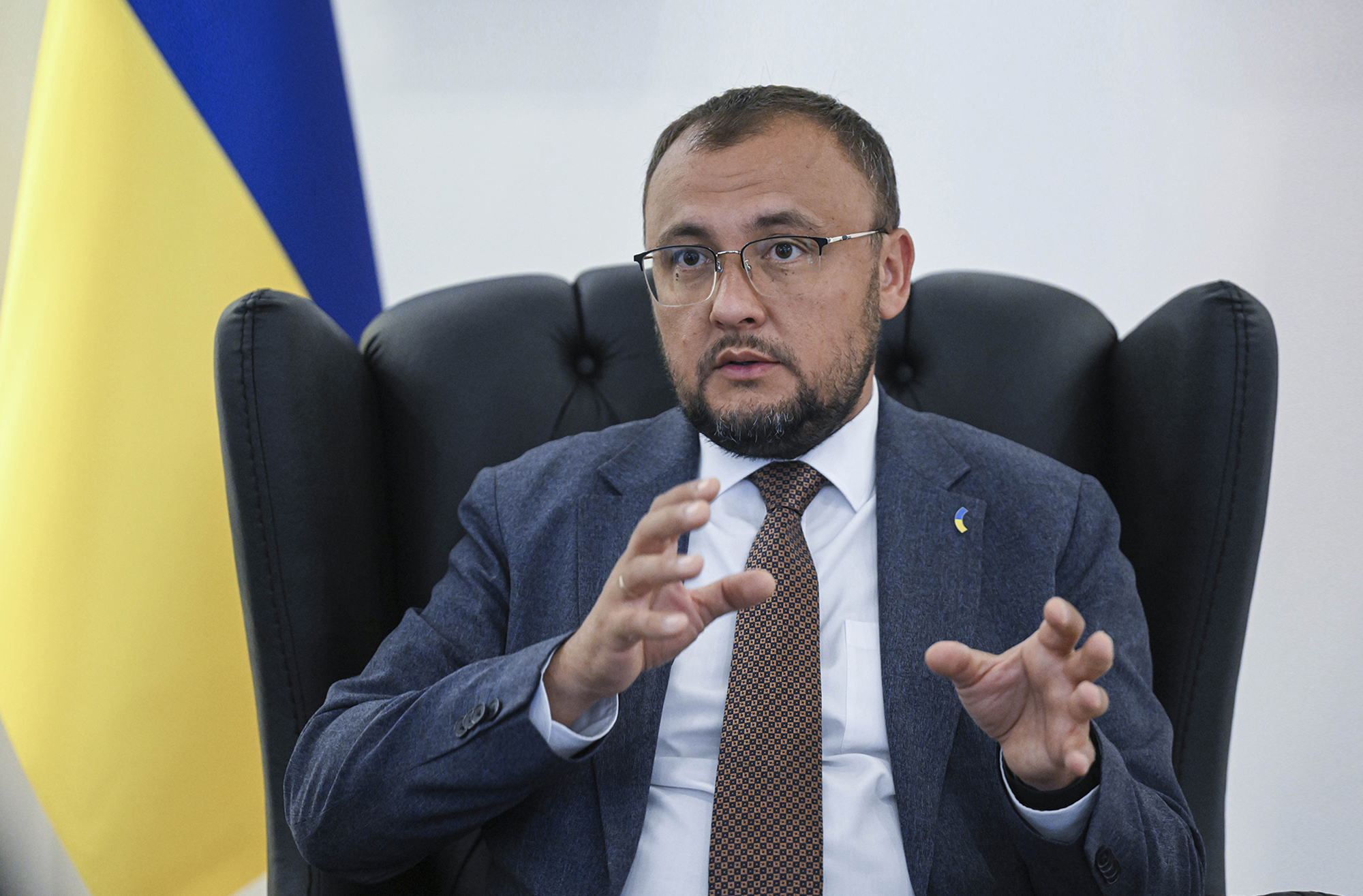From Volhynia tragedy to today's border crisis - Exclusive interview with Ukraine's ambassador to Poland
 Vasyl Bodnar, Ukraine's Ambassador to Poland (Getty Images)
Vasyl Bodnar, Ukraine's Ambassador to Poland (Getty Images)
What Ukraine can expect from Poland's future president Karol Nawrocki, why the Volhynia topic has resurfaced, why Poles' attitudes toward Ukrainians have worsened, and whether anything will change for Ukrainian refugees in Poland — read in the interview with Ukraine's Ambassador to Poland, Vasyl Bodnar.
The unexpected victory of Karol Nawrocki in Poland's presidential election means that the intensity of political competition in the neighboring country will not ease anytime soon.
Nawrocki, who will officially assume the presidency in a week, was supported by the right-wing conservative party Law and Justice (PiS), which all but guarantees a long-term conflict with their main opponents from the Civic Platform party, whose leader, Donald Tusk, will remain the country's prime minister.
Unfortunately, a clear trend in recent times has been the increasing use of the "Ukrainian card" in politics, not only by far-right actors but also by most mainstream political forces. This takes various forms, from renewed focus on the Volhynia tragedy to political speculation surrounding Ukrainian refugees in Poland. During his campaign, Nawrocki directly linked Ukraine's integration into the EU and NATO with resolving historical disputes.
It is therefore not surprising that, according to all sociological surveys, Polish attitudes toward Ukrainians—once overwhelmingly positive at the start of the full-scale Russian invasion—have now significantly deteriorated.
Meanwhile, Poland has been and will remain Ukraine's key western neighbor, a major logistical hub, and effectively a "window" to the European Union.
In a conversation with RBC-Ukraine, Ukraine's Ambassador to Poland, Vasyl Bodnar, stresses that expectations for immediate improvement in public attitudes toward Ukrainians are unrealistic.
"Parliamentary elections are just around the corner, internal political battles are intensifying, and Ukrainians could become hostages to this process. Our task is to minimize the negative impact and ensure the rights of Ukrainians in Poland. Much also depends on how bilateral dialogue develops," says Bodnar.
The ambassador cites specific examples: for instance, when progress was made on a practical level regarding the exhumation of Poles who died in the 1940s in western Ukraine, it positively influenced political discourse in Poland. Similarly, the issue of Polish farmers blocking the border, which at one point severely harmed Ukraine's economy, was alleviated through bilateral dialogue.
When asked directly whether it’s still accurate to call Poland a loyal and reliable ally of Ukraine, Bodnar replies: "Absolutely."
He adds that despite all challenges, there is a societal consensus in Poland that Russia is the greatest threat to Europe.
Below is a summary of the interview with Ambassador Bodnar.
Karol Nawrocki's presidency: Ukraine's expectations
The ambassador emphasizes the need to build constructive dialogue with Poland's newly elected president. Despite Nawrocki's focus on historical issues, Bodnar hopes for productive cooperation.
Ukraine is counting on Poland's continued support for its EU and NATO aspirations, given their shared security interests.
"When you speak privately with many people in Poland, they fully understand that our defense is Europe's defense," says Bodnar.
Impact of Polish domestic politics on bilateral relations
Despite the ongoing standoff between the Polish president and government, Ukraine aims to maintain balanced relations with both power centers.
"We are partners to both the president and the prime minister, as each has their own areas of authority, and it is important to maintain proper dialogue with both," says the ambassador.
Bodnar warns against exploiting Ukrainian-related topics in Polish political discourse, especially during election campaigns: "We are interested in ensuring that internal political differences do not affect bilateral relations."
Historical issues: Volhynia and exhumations
The topic of the Volhynia tragedy remains emotionally charged in Poland. The ambassador acknowledges the consensus within Polish society on this issue but stresses the importance of cooperation between historians and joint work on exhumations.
"Crimes must be condemned, mutual apologies offered, and the memory of the dead honored. That is the foundation of reconciliation!" says Bodnar, referring to crimes committed against both Poles and Ukrainians.
Ukraine has already initiated practical steps, including exhumations on its territory and preparations for a historians' forum.
"There must be institutional dialogue. Ideally, through cooperation between relevant bodies like the Institutes of National Remembrance," Bodnar adds.

Vasyl Bodnar, Ukraine's Ambassador to Poland (Photo: facebook.com/AmbasadaUkrainywPolsce)
Trade disputes and border blockades
As of now, the situation has stabilized — there are no blockades, transit is working, and issues are being resolved through intergovernmental dialogue.
"It was dialogue and cooperation between ministries that worked. Most contentious issues were resolved in such discussions," the ambassador says.
He adds that the risk of future tensions remains, especially with another election cycle in Poland just two years away, where politicians may again try to exploit such issues.
Worsening attitude toward Ukrainians in Poland
The worsening public perception of Ukrainian refugees is explained by psychological, social, and political factors.
"Imagine: you have a flat, and you let a stranger in — not even a foreigner. At first, you get used to them, and things seem okay. But over time, it starts to wear on you, irritate you, cause discomfort," explains the ambassador.
He also points to political manipulation, isolated incidents, and spreading stereotypes as sources of negativity.
"These are stereotypes: 'Ukrainians took our jobs,' 'Ukrainian women are more attractive and could steal your husband,' 'Ukrainians dominate certain economic sectors,' 'they don't wait in line to see a doctor,' and so on. These stir up emotions. Then politicians fan those emotions and use them," says Bodnar.
In response, the embassy emphasizes the facts: 69% of Ukrainian refugees in Poland are employed, generating about €22 billion annually for the Polish GDP.
"Smart people say: if these million Ukrainians leave tomorrow, the economy will collapse," he underlines.
Social support and legislative changes
Support programs are being reviewed not just for Ukrainians, but for all citizens of Poland. This includes checks on proper use of housing and benefit programs like "800+".
"A special law was passed to suspend payments if a child doesn't attend school. Authorities are now reviewing whether benefits are being granted appropriately," explains Bodnar.

Vasyl Bodnar, Ukraine's Ambassador to Poland (Photo: Getty Images)
He mentions cases where people left Poland but continued receiving payments — this, too, will be stopped.
However, the ambassador stresses: "These situations involve not just Ukrainians, but also Poles and other foreigners — this isn’t something targeting Ukrainians."
Poland as a strategic ally
Ambassador Bodnar unequivocally affirms Poland's role as a key ally of Ukraine.
"Without Poland, there would've been no first wave of military aid after the full-scale invasion. Without Poland, millions of Ukrainians wouldn't have found shelter. With all due respect to our other neighbors, their capacity to take us in was very different," he says.
He adds that without Poland, Ukraine would always have a vulnerable rear, given its geography and proximity to Russia and Belarus.
"It is in our interest that our western flank is secured by a reliable ally — one that may have its own internal challenges, but fully understands the higher-order threat posed by the Russian Federation. And I believe there is a consensus in Polish society that Russia is the greatest threat to Europe," Bodnar concludes.

